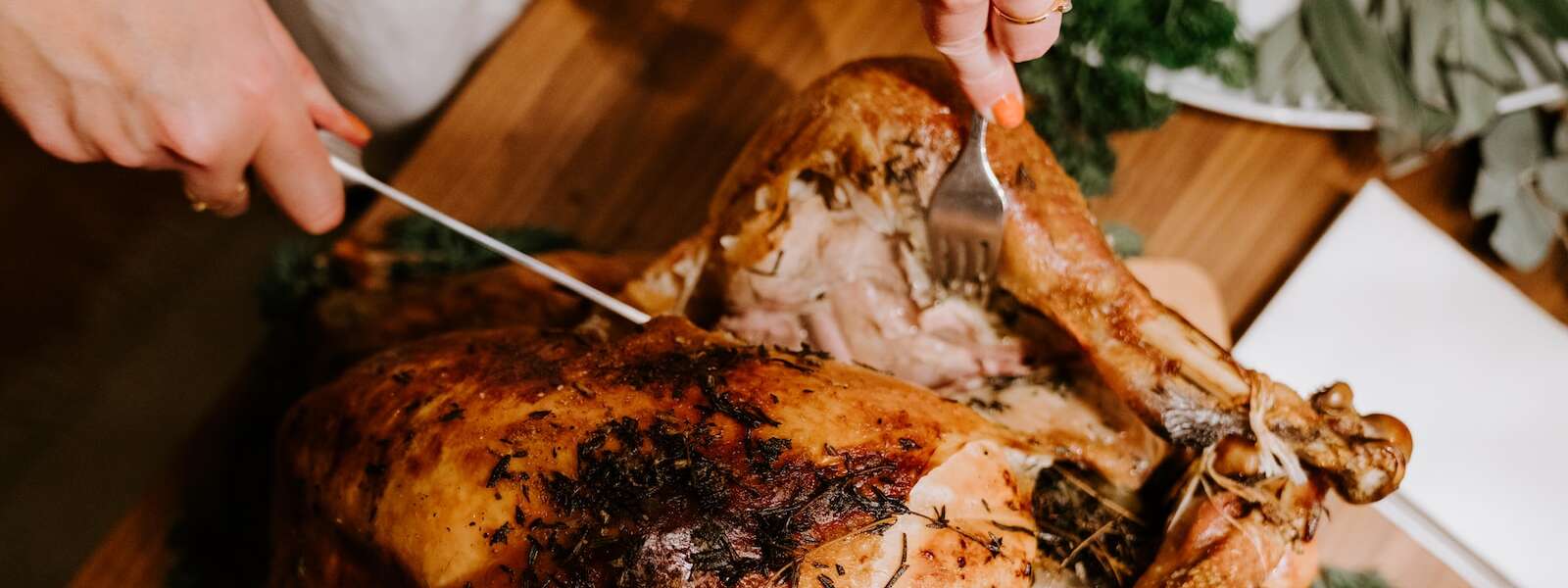
Thanksgiving is a time to gather with family and friends for a feast, but the day can also serve a dose of food-borne illness if precautions aren’t taken, says a University of Guelph food scientist.
Dr. Keith Warriner is a professor in the Department of Food Science at the Ontario Agricultural College who studies food-borne illness prevention. He looks at ways to decontaminate poultry and validate cooking instructions for commercial poultry products.
Raw turkey can become contaminated with various microbes, including Salmonella, Campylobacter, Clostridium perfringen and Staphylococcus aureus, all of which can cause mild to severe gastrointestinal illnesses. The latter may produce a toxin that cannot be destroyed by cooking.
Warriner has several tips for each stage of preparing a turkey, from proper storage and cooking to safely preparing leftovers.
Is it safer to buy fresh or frozen?
If you opt to buy a fresh turkey, plan to purchase the bird no more than three days before your meal and store it in the bottom of the refrigerator, says Warriner.
“Don’t place the turkey on the top shelf, because the juices containing harmful microbes can drip onto foods below,” he explains.
Buying frozen turkey is common but remember to immediately return it to a freezer when you get home. In the car, it can partially defrost, encouraging microbial growth, he says.
What’s the best way to defrost a turkey?
“Frozen turkey takes time to thaw, and care has to be taken to ensure the temperature of the bird doesn’t fall within the danger zone of four to 63 degrees Celsius (39.2 to 145.4 Fahrenheit),” says Warriner.
He cautions against thawing the turkey on the counter or in the fridge because it won’t fully defrost and can lead to instances of Salmonella, Campylobacter and S. aureus.
“The safest defrosting method is to place the frozen turkey, still in its wrapping, into a sink of cold water,” Warriner explains. “The water helps defrost the turkey safely and quickly, while keeping the surface sufficiently cold to prevent the growth of microbes.”
Tips for prepping a turkey for cooking?
Warriner warns against washing any part of the thawed turkey in the sink, however tempting it is. Instead, the turkey should be unpacked in a nearby, easy-to-sanitize area.
Stuffing should also be avoided because it will insulate the turkey and prevent hot air from cooking the inside of the turkey, says Wariner. Instead, stuffing should be cooked on the stovetop or baked in an oven.
All prepping tools should be washed with a chlorine solution – one cap of bleach per five litres of water will suffice – to kill any pathogens.
What’s the best way to cook a turkey?
Turkeys take a long time to cook and need to reach a temperature of 73 degrees Celsius (163.4 Fahrenheit) to be fully cooked (15 minutes of cooking per pound).
Warriner encourages using a meat thermometer inserted into the coldest part of the bird (i.e., middle of the thigh), to prevent overcooking “regardless of whether you use an oven, air fryer, rotisserie or even fat fryer.”
What’s the safest way to carve a turkey?
Turkeys need to rest for 15 to 30 minutes before carving, but no more than two hours at room temperature because Clostridium perfringens can proliferate and cause food poisoning, says Warriner.
Always use a different cutting board than the one used for the raw turkey, he adds. After the turkey has been carved, it should be kept warm in an oven during mealtime or stored in a fridge.
What should be done with leftovers?
“Although you might prefer to sleep the large dinner off, it is important to put leftovers in the fridge to stop pathogens from growing,” says Warriner.
He advises eating leftovers within five days, though they can be frozen for up to three months in sliced portions.
Warriner is available for interviews.
Contact:
Dr. Keith Warriner
kwarrine@uoguelph.ca
